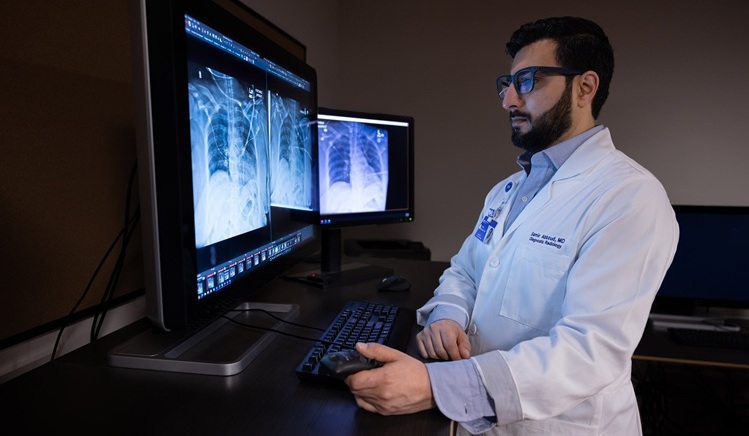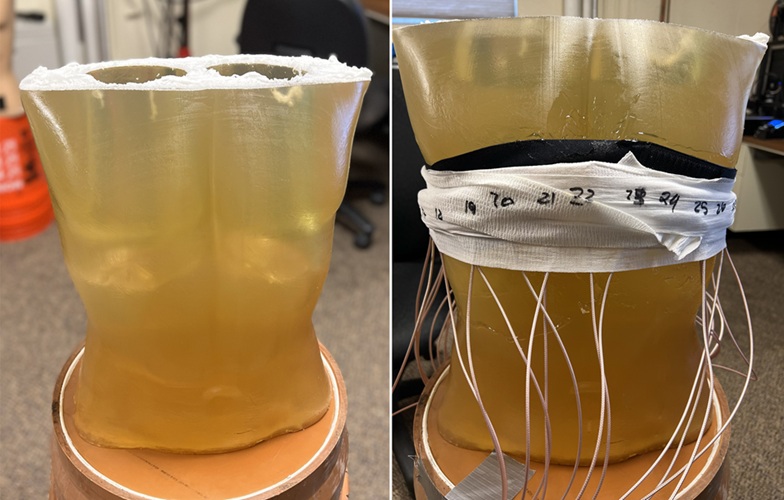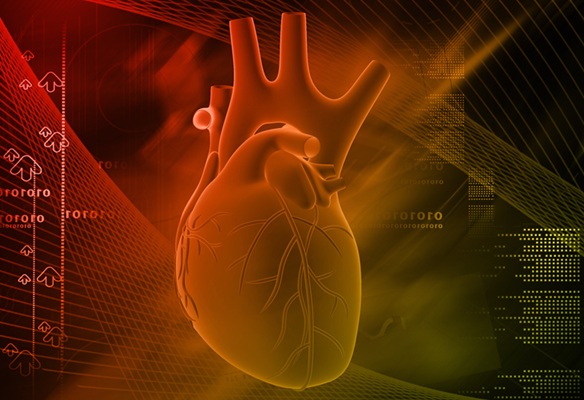Free Medical Film Digitization Service Cuts Costs from Healthcare Facility Budgets
|
By MedImaging International staff writers Posted on 14 Aug 2012 |
An on-site scanning service provides an earth-friendly, cost-effective archiving system for a cash-strapped medical industry.
With hospitals continually looking for new ways to slash costs while keeping customers satisfied, anything that can achieve this--especially for free--is helpful. Moreover, when that product or service is good for the environment, and that is precisely why more and more healthcare facilities are utilizing Bayland Digital, Inc. (Houston, TX, USA), a free medical scanning service that converts film X-rays into digital format and then recycles the old X-rays.
“Without a doubt, this is a win-win for all involved,” said Rudy Nematzadeh, Bayland Digital’s founder. “Patients are pleased because they can instantly receive high-quality, digital images of their older X-rays, and health care professionals can provide these digital scans while simultaneously cutting traditional archive-associated costs. As if that’s not enough, our no-cost service is earth-friendly. When X-rays are left to decompose in landfills, they are actually quite toxic, and so we’re trying to prevent that from happening through our complimentary recycling efforts.”
Bayland Digital specializes in scanning film such as X-rays, computed tomography (CT) scans, ultrasounds, magnetic resonance Imaging (MRIs), mammograms. Once scanned, the images are loaded into a fully searchable Digital Imaging and Communications in Medicine (DICOM) format, which works with picture archiving and communication system (PACS) and electronic medical record (EMR) systems. Bayland Digital, which can complete the entire conversion process onsite at no charge to the client, will then recycle the original films.
A HIPPA (Health Insurance Portability and Accountability Act of 1996)-compliant company, Bayland Digital adheres to HIPPA’s stringent privacy policies and ensures an error-free, secure transfer process. Bayland Digital also has a thorough regimen for verifying digitized X-rays--each patient’s name and/or identification number is validated three separate times. Only then are scanned digital files safely stored either on the client’s server or on a complimentary server provided by Bayland Digital.
“Everything we’re doing is part of an effort to support the conversion from analog to digital while reducing needless expenditures for our clients, their patients and everyone else who is affected by the physical, logistical, administrative, HR [human resources], and financial deadweight associated with outdated or traditional archiving,” stated Ash Attar, Bayland Digital’s cofounder. “Our solution eliminates the need for film storage, retrieval service fees, per-scan costs and so much more. With hospitals and other medical organizations struggling to trim fat from their budgets, this free film scanning process is a financial no-brainer for all.”
Bayland Digital, Inc. offers free medical film digitizing services. Founded by a team of information technology (IT) professionals, entrepreneurs, and medical equipment experts, Bayland Digital’s operates cutting-edge digital scanning equipment that is capable of digitizing and then recycling up to one million medical film sheets a month and on site, providing as fast, secure, and accurate final product.
Related Links:
Bayland Digital
With hospitals continually looking for new ways to slash costs while keeping customers satisfied, anything that can achieve this--especially for free--is helpful. Moreover, when that product or service is good for the environment, and that is precisely why more and more healthcare facilities are utilizing Bayland Digital, Inc. (Houston, TX, USA), a free medical scanning service that converts film X-rays into digital format and then recycles the old X-rays.
“Without a doubt, this is a win-win for all involved,” said Rudy Nematzadeh, Bayland Digital’s founder. “Patients are pleased because they can instantly receive high-quality, digital images of their older X-rays, and health care professionals can provide these digital scans while simultaneously cutting traditional archive-associated costs. As if that’s not enough, our no-cost service is earth-friendly. When X-rays are left to decompose in landfills, they are actually quite toxic, and so we’re trying to prevent that from happening through our complimentary recycling efforts.”
Bayland Digital specializes in scanning film such as X-rays, computed tomography (CT) scans, ultrasounds, magnetic resonance Imaging (MRIs), mammograms. Once scanned, the images are loaded into a fully searchable Digital Imaging and Communications in Medicine (DICOM) format, which works with picture archiving and communication system (PACS) and electronic medical record (EMR) systems. Bayland Digital, which can complete the entire conversion process onsite at no charge to the client, will then recycle the original films.
A HIPPA (Health Insurance Portability and Accountability Act of 1996)-compliant company, Bayland Digital adheres to HIPPA’s stringent privacy policies and ensures an error-free, secure transfer process. Bayland Digital also has a thorough regimen for verifying digitized X-rays--each patient’s name and/or identification number is validated three separate times. Only then are scanned digital files safely stored either on the client’s server or on a complimentary server provided by Bayland Digital.
“Everything we’re doing is part of an effort to support the conversion from analog to digital while reducing needless expenditures for our clients, their patients and everyone else who is affected by the physical, logistical, administrative, HR [human resources], and financial deadweight associated with outdated or traditional archiving,” stated Ash Attar, Bayland Digital’s cofounder. “Our solution eliminates the need for film storage, retrieval service fees, per-scan costs and so much more. With hospitals and other medical organizations struggling to trim fat from their budgets, this free film scanning process is a financial no-brainer for all.”
Bayland Digital, Inc. offers free medical film digitizing services. Founded by a team of information technology (IT) professionals, entrepreneurs, and medical equipment experts, Bayland Digital’s operates cutting-edge digital scanning equipment that is capable of digitizing and then recycling up to one million medical film sheets a month and on site, providing as fast, secure, and accurate final product.
Related Links:
Bayland Digital
Latest Imaging IT News
- New Google Cloud Medical Imaging Suite Makes Imaging Healthcare Data More Accessible
- Global AI in Medical Diagnostics Market to Be Driven by Demand for Image Recognition in Radiology
- AI-Based Mammography Triage Software Helps Dramatically Improve Interpretation Process
- Artificial Intelligence (AI) Program Accurately Predicts Lung Cancer Risk from CT Images
- Image Management Platform Streamlines Treatment Plans
- AI-Based Technology for Ultrasound Image Analysis Receives FDA Approval
- AI Technology for Detecting Breast Cancer Receives CE Mark Approval
- Digital Pathology Software Improves Workflow Efficiency
- Patient-Centric Portal Facilitates Direct Imaging Access
- New Workstation Supports Customer-Driven Imaging Workflow
Channels
Radiography
view channel
AI Radiology Tool Identifies Life-Threatening Conditions in Milliseconds
Radiology is emerging as one of healthcare’s most pressing bottlenecks. By 2033, the U.S. could face a shortage of up to 42,000 radiologists, even as imaging volumes grow by 5% annually.... Read more
Machine Learning Algorithm Identifies Cardiovascular Risk from Routine Bone Density Scans
A new study published in the Journal of Bone and Mineral Research reveals that an automated machine learning program can predict the risk of cardiovascular events and falls or fractures by analyzing bone... Read more
AI Improves Early Detection of Interval Breast Cancers
Interval breast cancers, which occur between routine screenings, are easier to treat when detected earlier. Early detection can reduce the need for aggressive treatments and improve the chances of better outcomes.... Read more
World's Largest Class Single Crystal Diamond Radiation Detector Opens New Possibilities for Diagnostic Imaging
Diamonds possess ideal physical properties for radiation detection, such as exceptional thermal and chemical stability along with a quick response time. Made of carbon with an atomic number of six, diamonds... Read moreMRI
view channel
New MRI Technique Reveals Hidden Heart Issues
Traditional exercise stress tests conducted within an MRI machine require patients to lie flat, a position that artificially improves heart function by increasing stroke volume due to gravity-driven blood... Read more
Shorter MRI Exam Effectively Detects Cancer in Dense Breasts
Women with extremely dense breasts face a higher risk of missed breast cancer diagnoses, as dense glandular and fibrous tissue can obscure tumors on mammograms. While breast MRI is recommended for supplemental... Read moreUltrasound
view channel
New Medical Ultrasound Imaging Technique Enables ICU Bedside Monitoring
Ultrasound computed tomography (USCT) presents a safer alternative to imaging techniques like X-ray computed tomography (commonly known as CT or “CAT” scans) because it does not produce ionizing radiation.... Read more
New Incision-Free Technique Halts Growth of Debilitating Brain Lesions
Cerebral cavernous malformations (CCMs), also known as cavernomas, are abnormal clusters of blood vessels that can grow in the brain, spinal cord, or other parts of the body. While most cases remain asymptomatic,... Read moreNuclear Medicine
view channel
New Imaging Approach Could Reduce Need for Biopsies to Monitor Prostate Cancer
Prostate cancer is the second leading cause of cancer-related death among men in the United States. However, the majority of older men diagnosed with prostate cancer have slow-growing, low-risk forms of... Read more
Novel Radiolabeled Antibody Improves Diagnosis and Treatment of Solid Tumors
Interleukin-13 receptor α-2 (IL13Rα2) is a cell surface receptor commonly found in solid tumors such as glioblastoma, melanoma, and breast cancer. It is minimally expressed in normal tissues, making it... Read moreGeneral/Advanced Imaging
view channel
CT Colonography Beats Stool DNA Testing for Colon Cancer Screening
As colorectal cancer remains the second leading cause of cancer-related deaths worldwide, early detection through screening is vital to reduce advanced-stage treatments and associated costs.... Read more
First-Of-Its-Kind Wearable Device Offers Revolutionary Alternative to CT Scans
Currently, patients with conditions such as heart failure, pneumonia, or respiratory distress often require multiple imaging procedures that are intermittent, disruptive, and involve high levels of radiation.... Read more
AI-Based CT Scan Analysis Predicts Early-Stage Kidney Damage Due to Cancer Treatments
Radioligand therapy, a form of targeted nuclear medicine, has recently gained attention for its potential in treating specific types of tumors. However, one of the potential side effects of this therapy... Read moreIndustry News
view channel
GE HealthCare and NVIDIA Collaboration to Reimagine Diagnostic Imaging
GE HealthCare (Chicago, IL, USA) has entered into a collaboration with NVIDIA (Santa Clara, CA, USA), expanding the existing relationship between the two companies to focus on pioneering innovation in... Read more
Patient-Specific 3D-Printed Phantoms Transform CT Imaging
New research has highlighted how anatomically precise, patient-specific 3D-printed phantoms are proving to be scalable, cost-effective, and efficient tools in the development of new CT scan algorithms... Read more
Siemens and Sectra Collaborate on Enhancing Radiology Workflows
Siemens Healthineers (Forchheim, Germany) and Sectra (Linköping, Sweden) have entered into a collaboration aimed at enhancing radiologists' diagnostic capabilities and, in turn, improving patient care... Read more














.jpeg)



